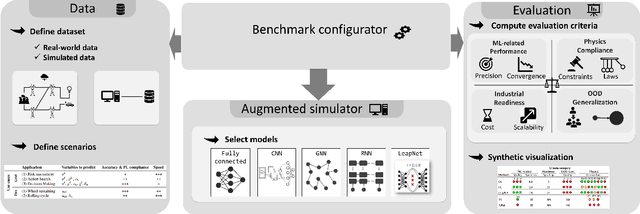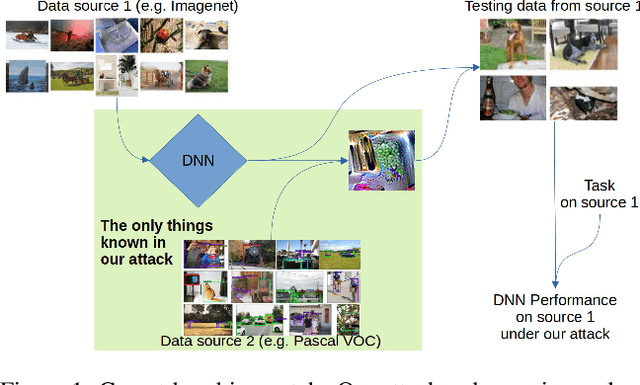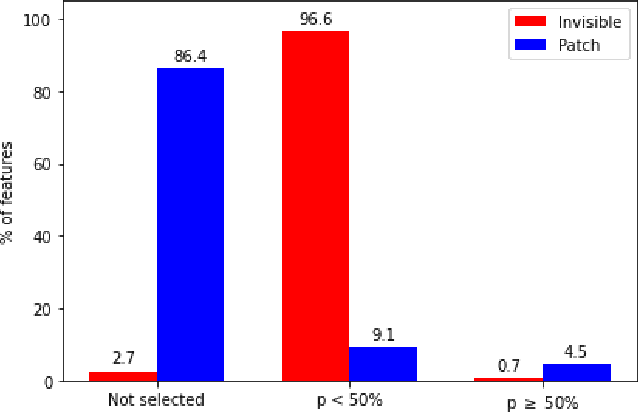Milad Leyli-Abadi
NeurIPS 2024 ML4CFD Competition: Results and Retrospective Analysis
Jun 10, 2025Abstract:The integration of machine learning (ML) into the physical sciences is reshaping computational paradigms, offering the potential to accelerate demanding simulations such as computational fluid dynamics (CFD). Yet, persistent challenges in accuracy, generalization, and physical consistency hinder the practical deployment of ML models in scientific domains. To address these limitations and systematically benchmark progress, we organized the ML4CFD competition, centered on surrogate modeling for aerodynamic simulations over two-dimensional airfoils. The competition attracted over 240 teams, who were provided with a curated dataset generated via OpenFOAM and evaluated through a multi-criteria framework encompassing predictive accuracy, physical fidelity, computational efficiency, and out-of-distribution generalization. This retrospective analysis reviews the competition outcomes, highlighting several approaches that outperformed baselines under our global evaluation score. Notably, the top entry exceeded the performance of the original OpenFOAM solver on aggregate metrics, illustrating the promise of ML-based surrogates to outperform traditional solvers under tailored criteria. Drawing from these results, we analyze the key design principles of top submissions, assess the robustness of our evaluation framework, and offer guidance for future scientific ML challenges.
Machine Learning for Physical Simulation Challenge Results and Retrospective Analysis: Power Grid Use Case
May 02, 2025



Abstract:This paper addresses the growing computational challenges of power grid simulations, particularly with the increasing integration of renewable energy sources like wind and solar. As grid operators must analyze significantly more scenarios in near real-time to prevent failures and ensure stability, traditional physical-based simulations become computationally impractical. To tackle this, a competition was organized to develop AI-driven methods that accelerate power flow simulations by at least an order of magnitude while maintaining operational reliability. This competition utilized a regional-scale grid model with a 30\% renewable energy mix, mirroring the anticipated near-future composition of the French power grid. A key contribution of this work is through the use of LIPS (Learning Industrial Physical Systems), a benchmarking framework that evaluates solutions based on four critical dimensions: machine learning performance, physical compliance, industrial readiness, and generalization to out-of-distribution scenarios. The paper provides a comprehensive overview of the Machine Learning for Physical Simulation (ML4PhySim) competition, detailing the benchmark suite, analyzing top-performing solutions that outperformed traditional simulation methods, and sharing key organizational insights and best practices for running large-scale AI competitions. Given the promising results achieved, the study aims to inspire further research into more efficient, scalable, and sustainable power network simulation methodologies.
ML4PhySim : Machine Learning for Physical Simulations Challenge (The airfoil design)
Mar 03, 2024



Abstract:The use of machine learning (ML) techniques to solve complex physical problems has been considered recently as a promising approach. However, the evaluation of such learned physical models remains an important issue for industrial use. The aim of this competition is to encourage the development of new ML techniques to solve physical problems using a unified evaluation framework proposed recently, called Learning Industrial Physical Simulations (LIPS). We propose learning a task representing a well-known physical use case: the airfoil design simulation, using a dataset called AirfRANS. The global score calculated for each submitted solution is based on three main categories of criteria covering different aspects, namely: ML-related, Out-Of-Distribution, and physical compliance criteria. To the best of our knowledge, this is the first competition addressing the use of ML-based surrogate approaches to improve the trade-off computational cost/accuracy of physical simulation.The competition is hosted by the Codabench platform with online training and evaluation of all submitted solutions.
Carpet-bombing patch: attacking a deep network without usual requirements
Dec 12, 2022



Abstract:Although deep networks have shown vulnerability to evasion attacks, such attacks have usually unrealistic requirements. Recent literature discussed the possibility to remove or not some of these requirements. This paper contributes to this literature by introducing a carpet-bombing patch attack which has almost no requirement. Targeting the feature representations, this patch attack does not require knowing the network task. This attack decreases accuracy on Imagenet, mAP on Pascal Voc, and IoU on Cityscapes without being aware that the underlying tasks involved classification, detection or semantic segmentation, respectively. Beyond the potential safety issues raised by this attack, the impact of the carpet-bombing attack highlights some interesting property of deep network layer dynamic.
 Add to Chrome
Add to Chrome Add to Firefox
Add to Firefox Add to Edge
Add to Edge